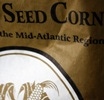
A seeds company rep asked a farmer last spring who plants different brands how he liked their seed. The answer wasn't what he wanted to hear. "Your seed was dirty," the farmer says. "All three hybrid had beeswings in the bag."
That's not dirt. What's the big deal? The farmer explained that sometimes the planter sees a beeswing piece as a kernel. It can mess up planting accuracy. In the end, two of the three hybrids yielded as well as anything else. But opening a bag and finding beeswings or other debris doesn't leave a good 'first impression.'
Dan and Dee Dee Warner, Bradford, Ohio, and Dan's brother operate Warner Seed farms. Their primary role is growing seed for other companies. Within the past five years, they've invested hundreds of thousands of dollars in equipment that's suppose to produce clan, properly graded seed, including a color sorter for seed corn. One of the primary companies they grows for is Seed Consultants, Inc., Washington Courthouse, Ohio.
"Our quality is very good this year," Dan says. Sometimes you can have some issues with beeswings, but it shouldn't be an issue this year."
One year ago even seed corn coming out of the field wasn't of as high quality as this year's corn. There was some ear tip breakage and other things that made cleaning more difficult. Warner has a series of tools that minimize the amount of beeswings that wind up in the bag. However, he notes it was more of a chore to make sure he ended up putting out a quality product last year than it will be this year.
In years when cob integrity isn't as good or some molds are involved, there is more chance that getting everything of the kernels and keeping everything besides kernels in the bag will be more difficult, he notes. However, there are ways to minimize this kind of problem, and Warner utilized it a year ago.
He started harvest when seed corn was at a high percentage of moisture. But with modern pickers that leave the husk on, then seed corn driers, that's not an issue in producing quality seed. Once the seed is processed, samples are sent to a lab for purity and germination checks.
The first hybrid shipped off this year came back with excellent warm germination and cold germination test scores, Warner says. He sees that as a sign of good things to come regarding seed quality.
About the Author(s)
You May Also Like




